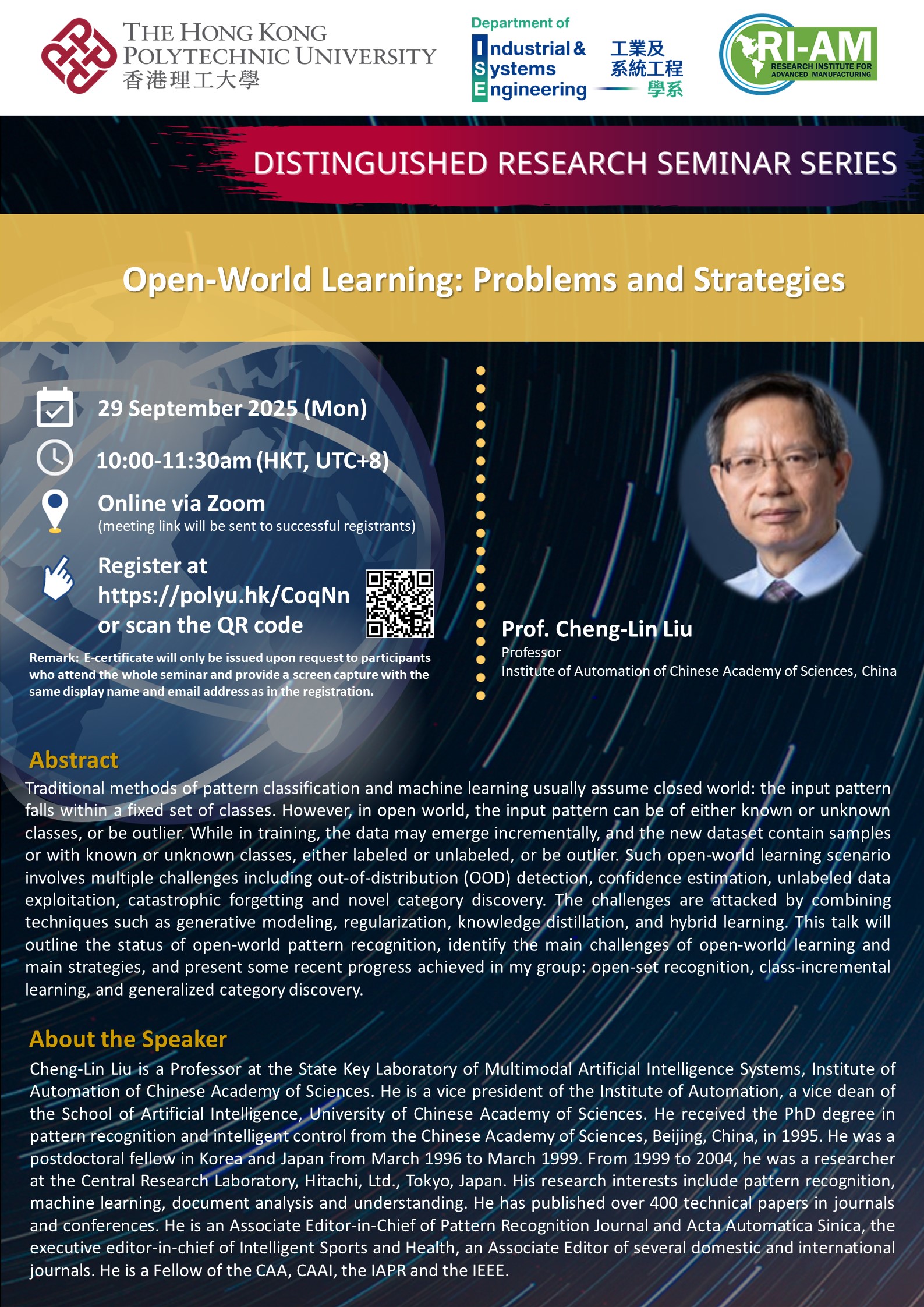Open-World Learning: Problems and Strategies
Distinguished Research Seminar Series

-
Date
29 Sep 2025
-
Organiser
Department of Industrial and Systems Engineering, PolyU
-
Time
10:00 - 11:30
-
Venue
Online via ZOOM
Speaker
Prof. Cheng-Lin Liu
Remarks
Meeting link will be sent to successful registrants
Summary
Traditional methods of pattern classification and machine learning usually assume closed world: the input pattern falls within a fixed set of classes. However, in open world, the input pattern can be of either known or unknown classes, or be outlier. While in training, the data may emerge incrementally, and the new dataset contain samples or with known or unknown classes, either labeled or unlabeled, or be outlier. Such open-world learning scenario involves multiple challenges including out-of-distribution (OOD) detection, confidence estimation, unlabeled data exploitation, catastrophic forgetting and novel category discovery. The challenges are attacked by combining techniques such as generative modeling, regularization, knowledge distillation, and hybrid learning. This talk will outline the status of open-world pattern recognition, identify the main challenges of open-world learning and main strategies, and present some recent progress achieved in my group: open-set recognition, class-incremental learning, and generalized category discovery.
Keynote Speaker

Prof. Cheng-Lin Liu
Professor
Institute of Automation of Chinese Academy of Sciences, China
Cheng-Lin Liu is a Professor at the State Key Laboratory of Multimodal Artificial Intelligence Systems, Institute of Automation of Chinese Academy of Sciences. He is a vice president of the Institute of Automation, a vice dean of the School of Artificial Intelligence, University of Chinese Academy of Sciences. He received the PhD degree in pattern recognition and intelligent control from the Chinese Academy of Sciences, Beijing, China, in 1995. He was a postdoctoral fellow in Korea and Japan from March 1996 to March 1999. From 1999 to 2004, he was a researcher at the Central Research Laboratory, Hitachi, Ltd., Tokyo, Japan. His research interests include pattern recognition, machine learning, document analysis and understanding. He has published over 400 technical papers in journals and conferences. He is an Associate Editor-in-Chief of Pattern Recognition Journal and Acta Automatica Sinica, the executive editor-in-chief of Intelligent Sports and Health, an Associate Editor of several domestic and international journals. He is a Fellow of the CAA, CAAI, the IAPR and the IEEE
You may also like















